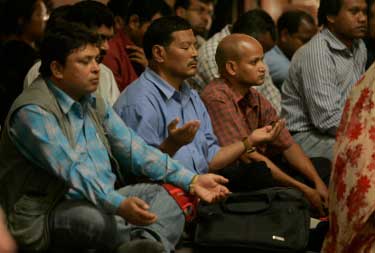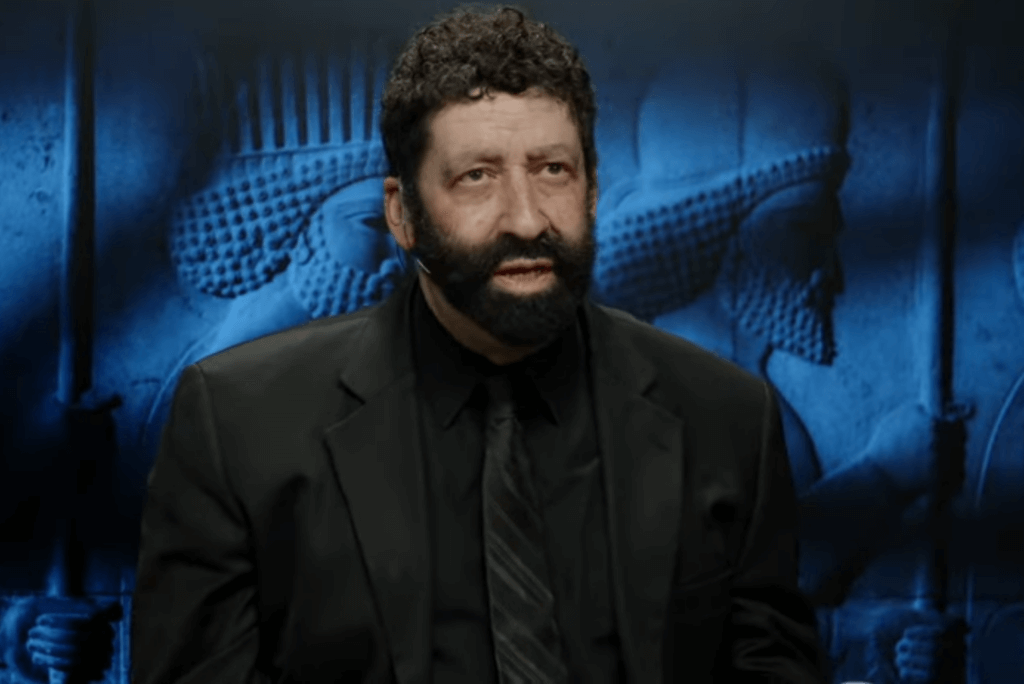Defying pouring rain and flooded streets, over two dozen people have gathered faithfully at the Putalisadak Church in the heart of capital city Kathmandu for the regular Thursday evening Bible study class, bringing a smile of satisfaction on the face of Pastor Dev Kumar Chetri.
The smile fades, however, when he talks about the problems that Nepal’s second-oldest church has faced due to government discrimination. Hundreds of other churches scattered through the former Hindu kingdom have faced the same problem.
The roots of the discrimination are imbedded in history. When four missionaries from neighboring India’s Kerala state came to Kathmandu Valley and founded the Bethshalom Putalisadak Church in 1953, preaching non-Hindu religions was a punishable offense. A powerful Nepalese aristocrat, Col. Nara Raj Shumsher Jung Bahadur Rana, who had secretly converted to Christianity in India, helped build the Protestant church on land bought in his name and those of two others.
“As per the old laws, churches were not allowed to register as religious institutions,” said Chari Bahadur Gahatraj, a Protestant pastor. “They functioned either as Non-Governmental Organizations [NGOs] or personal properties. In 2006, when Parliament formally declared Nepal secular, we thought it would change and churches would be recognized as religious institutions.”
Five years later, however, discrimination against Christians continues, Gahatraj said.
“We have not even been mentioned in the new policies and programs of the government proposed in Parliament this year,” he said.
The Putalisadak church suffered a crisis when two of the men who were co-owners of the land went to court to reclaim their share. The church land had to be carved up to resolve the dispute. Then it suffered another blow when the land it had bought with donations from parishioners in Lele village in neighboring Lalitpur district to build a cemetery 10 years ago could not be used due to fierce resistance by locals.
“This is the saddest story,” Pastor Chetri said. “Our church records indicate there are nearly 2 million Christians and about 4,000 churches in Nepal now. But most of them don’t have a final resting place, as Christianity is still not recognized in Nepal. It is as if we don’t exist.”
Operation World’s estimate of the number of Christians in Nepal is lower than the church’s – 850,801 – but the latest edition estimates a higher number of congregations, 9,780, than the Putalisadak church does.
The third-oldest church in Nepal, Nepali Isahi Mandali, founded in 1957, was also dragged to court by a resentful neighbor.
“When our congregation started growing, in 2006 we started building a bigger hall to accommodate them,” said Pastor Samuel Karthak. “But it was opposed by a neighbor, who went to court. The dispute went up to the Supreme Court before it was resolved. We would have felt so much more secure if the churches had been recognized as religious institutions. However, we are still regarded as second-class citizens, and churches as places that exist only to convert people. We still don’t have a voice.”
Stung by government apathy, Christians this month joined forces with other excluded religious communities like Buddhists and Muslims to begin a campaign seeking an end to religious discrimination.
The Inter-Religious Secularism Protection Movement (IRSPM) is asking the government to allow churches, mosques, Buddhist monasteries and all other institutions run by religious minorities to be registered as religious institutions and be exempted from paying taxes.
“Despite ratifying several international conventions and despite becoming secular, Nepal has not recognized Buddhist monasteries, mosques, churches, Sikh gurdwaras [worship halls] and other religious institutions belonging to the religious minorities as religious trusts,” said Ishu Jung Karki, IRSPM’s acting coordinator. “Instead, it is nurturing laws that promote one particular religion.”
The campaigners are demanding that the government amend the draft of a new penal code that has triggered widespread controversy and condemnation over the inclusion of clauses that make conversions a punishable offense. Instead, they are asking for a new Religion Act as well as Religion Commission to resolve religious disputes.
Christians make up 2.85 percent of the population of Nepal, a nation that is 16 percent Buddhist and 4.4 percent Muslim; Hindus are the majority at 75 percent, according to Operation World.
For the first time, Christians and other religious minorities are seeking proportional representation in all state organs such as the army, judiciary and civil service on the basis of population. Though Nepal’s new Parliament has 601 seats with the provision that the prime minister should nominate representatives from unrepresented communities, the stipulation has been virtually ignored. Most ignored have been Christians.
The campaign has also expressed concern at strident propaganda by a section of the Nepalese media against religious minorities; these media representatives say the religious minorities’ proposals aim to spread “envy, hatred and strife.” The Christian community has been especially alarmed by a recent article in a popular English daily, authored by the editor of a financial newspaper, who alleged that all international NGOs that had set up office in Nepal aimed to propagate Christianity.
Perhaps the greatest concern by Christians is about the delay in promulgating a new constitution that was to have bolstered the nascent republic’s secular status. The major political parties failed to meet two deadlines – one last year and one in May – to get the charter ready. A third deadline looms on Aug. 31, and it is evident that not even the first draft of the document will be ready.
The inordinate delay has given militant Hindu groups time to push for the restoration of Hinduism as the state religion and for a referendum to decide if Nepal should remain secular.
“The government should implement the new constitution by Aug. 31,” reads an IRSPM press statement. “That is the mandate of the people as well as the pro-democracy movement.”
The pro-democracy movement ended Hindu King Gyanendra Shah’s army-backed rule and brought the political parties to power.
See an error in this article?
To contact us or to submit an article






















